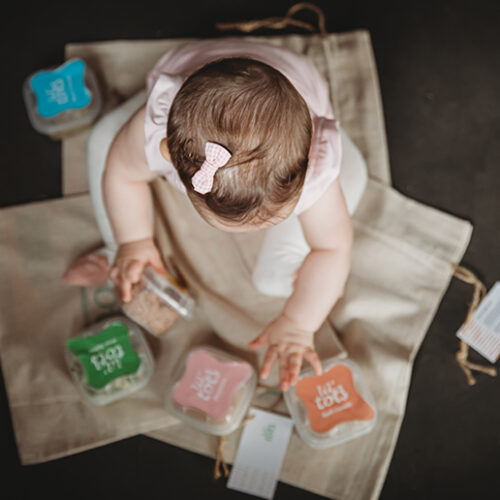The power of saying “I notice…”

Here’s why the words “I notice…” can be a game-changer for navigating tricky parenting situations!
Finding the right words in the midst of parenting challenges isn’t always easy. With so many different approaches and opinions out there, it’s understandable for parents to feel overwhelmed. However, there’s a simple phrase that can help ease communication and create a positive atmosphere at home, and that is “I notice…” This phrase is a powerful tool that invites a conversation and encourages some reflection, without putting kids on the defensive.
Start with awareness
Using “I notice…” as a starting point allows you to gently point out behaviours or actions without immediately jumping to criticism or judgement. This approach helps kids become aware of their actions, opening up a space for discussion and understanding. For example, instead of saying, “You’re being messy!” you could try, “I notice there are toys all over the floor.” This statement simply acknowledges what’s happening, rather than labelling or blaming.
Such phrasing is effective because it invites children to observe and think about their behaviour without feeling judged. When you start with “I notice…”, you’re not assuming the worst or assigning any negative intent – you’re just stating what you see. This makes it more likely that your little one will be receptive to the conversation that follows.
Solving problems together
Once you’ve acknowledged the situation, follow up with an open-ended question like, “What can we do about that?” or “How do you think we could fix this?” This approach encourages your child to think independently and come up with their own solutions, promoting their problem-solving skills and ability to think. Most importantly, however, it also creates a sense of accountability, as your child is actively participating in addressing the issue.
For instance, if you say, “I notice you’ve been having a tough time getting ready for school on time,” and then ask, “What do you think we can change to make mornings easier?” you’re giving your child the opportunity to reflect on their own behaviour and suggest practical solutions. This way, they feel more involved and invested in making positive changes, and less defensive about doing something ‘wrong’.
A way to connect
The phrase “I notice…” can also be used to acknowledge your child’s emotions, which is key to building empathy and connection between you both. Recognising their feelings without judgement helps children feel understood and valued. For example, “I notice you seem upset after school – do you want to talk about what happened?” This phrasing shows that you’re paying attention and that their feelings matter, which strengthens their trust in your bond.
Using this approach consistently makes children feel seen and heard, which can be especially valuable during times of heightened emotions or stress. It shows your child that you care about what they’re going through and are there to support them without pushing or prying.
Younger children
When communicating with younger kids, “I notice” statements can be paired with clear expectations to guide their behaviour in a positive way. For example, saying, “I notice you’re running around a lot – let’s try sitting down until we finish eating” helps redirect your child without sounding like an argument. It’s a simple, gentle way to highlight the behaviour and offer a solution.
Adding a collaborative element like “let’s” helps younger children feel involved in making choices, rather than being told what to do. This can be more effective in guiding their behaviour while still keeping the atmosphere positive and encouraging.
Older kids and teens
As kids grow older, “I notice…” can still be a highly effective tool, but it’s helpful to pair it with more open-ended prompts. For instance, with a teenager, you might say, “I notice you’ve been spending a lot of time in your room – are you feeling overwhelmed?” This invites them to share their feelings or experiences without feeling pressured.
You can also use “I notice…” to discuss recurring behaviours that might need addressing. Saying something like, “I notice you’ve been putting off your homework a lot lately – what’s been going on?” can open up a dialogue without sounding accusatory. Your older child will appreciate being treated with respect, and they’re more likely to respond positively when they feel you’re genuinely interested in their perspective.
Reinforcing positive behaviour
“I notice” isn’t just for addressing concerns – it’s also a fantastic way to reinforce positive behaviour. Saying, “I notice you were really patient with your sister today. That was kind of you,” helps your child recognise what they did well and encourages them to repeat it in the future.
Using “I notice” to praise positive actions shows your child that you’re paying attention to the good things they do, not just the challenging ones. It makes them feel appreciated and seen for their efforts, which boosts their confidence and motivates them to continue behaving nicely.
Incorporating “I notice…” into your parenting vocabulary can help make everyday interactions smoother and happier. It’s a small change, but it has the potential to create big shifts in the way your child responds and relates to you. With this simple phrase, you can create the environment you want between you both – one of respect, good communication and understanding – one “I notice” at a time.
Image Credit: ShutterStock












Comments